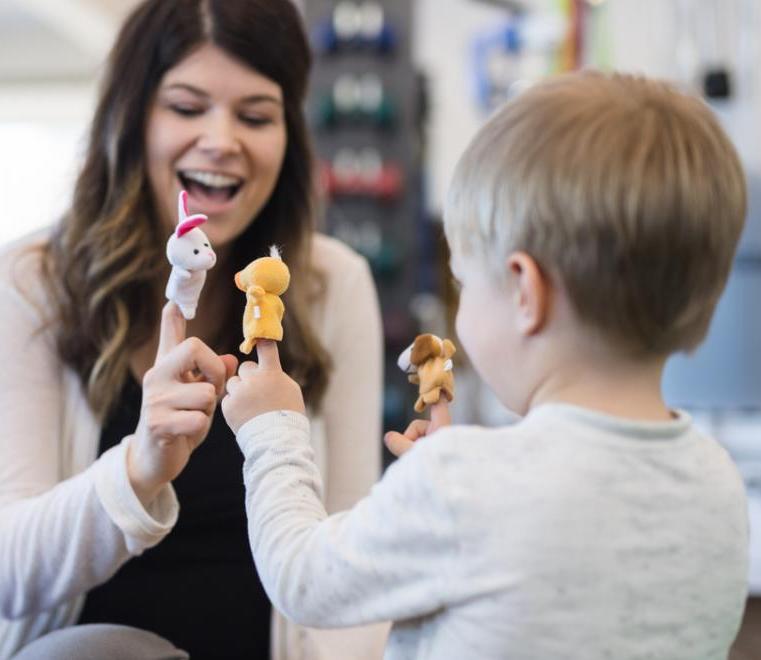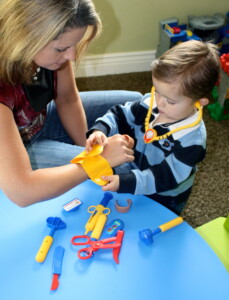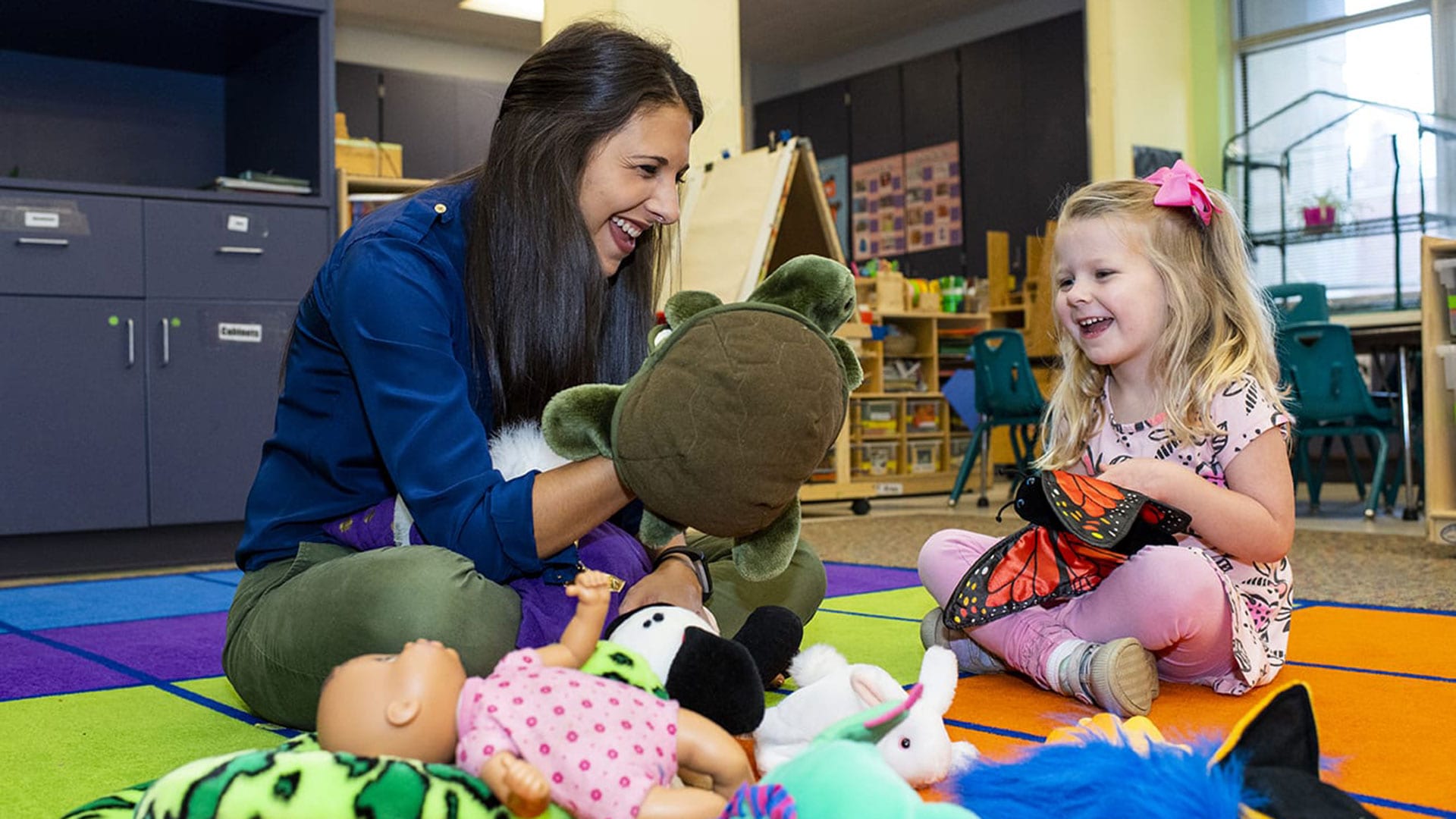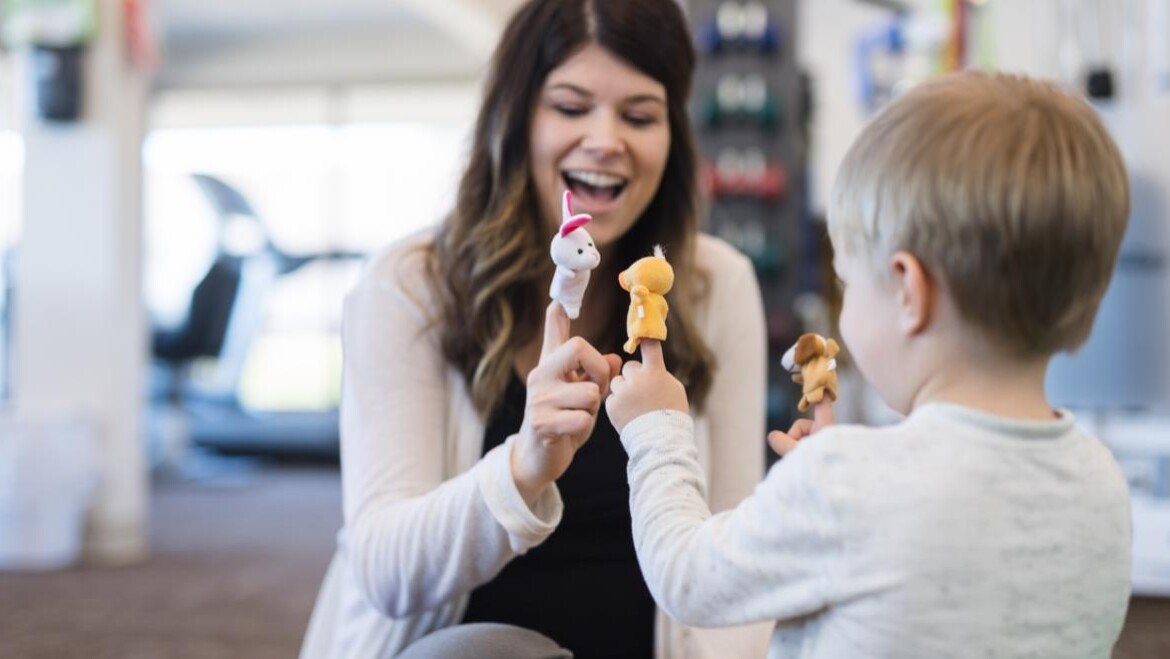About Play Therapy
Play therapy is a developmentally sensitive way to provide counseling to young clients. It takes place in a special office called a playroom equipped with a variety of carefully selected toys, games, art supplies, and other child-friendly materials. The inviting atmosphere of the playroom and the warm, playful personality of the therapist create a safe environment which naturally engages a child in their work. Because play is naturally healing and expressive it’s the perfect foundation for a child’s therapeutic process! Child therapists often say “play is a child’s natural language and the toys are their words.”
This child friendly form of therapy can range from being mostly child-directed (the child chooses which toys and activities to use in the playroom which is based on the belief that children are capable of directing their own path to achieve wellness) to a more therapist-directed approach (the therapist guides the process with specific, tailored games and activities to benefit the child). Often a creative blend of these approaches is used in order to tailor the sessions for each client’s needs.
What Do Play Therapists Do?
Play therapists create a safe place for young clients by building a trusting relationship, giving undivided attention to them, allowing children to be themselves, and providing a variety of “tools” (toys, games, supplies, and activities) that allow the children to do the work they need to do in a comfortable setting that is tailored to them. In the first session, the therapist will meet with the child and parents to learn about and connect with the child, to orient the child to the playroom, and to determine goals for treatment. Play therapists are skilled in connecting with their young clients, meeting them where they are in the therapeutic process, assessing their needs through play, and tailoring the sessions so that clients can reach their goals.


How Play Therapy Helps
Many presenting issues can be addressed in play therapy including: anxiety, depression, deficits in social skills, low self-esteem, ADD/ADHD, grief & loss, aggression/anger, trauma, emotional regulation, adjustment to life stressors, and more. The symbolic nature of toys such as puppets, the sandtray, art materials, dramatic play, medical toys, and dollhouses makes it possible for a child to play out what needs to be expressed, master a situation that previously felt overpowering, heal from past traumas, gain new insights, see themselves differently, and try out new found skills. This playful, symbolic approach is extremely natural for children and typically feels safer. The experiential nature of play therapy is healing on a much deeper level than “talk therapy” which isn’t developmentally appropriate for most children anyway.



